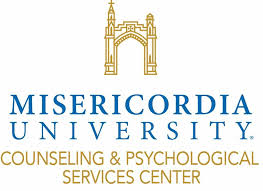CAPS Center: Most Students Report Pandemic-Related Concerns

Isolation and pandemic-related guidelines are putting a strain on many students, so easing it is the priority of staffers’ at the Counseling and Psychological Services Center.
A large percentage of students have cited the pandemic as having a negative impact on their lives, said Curtis Wiseley, CAPS Center Director.
“Without question, the pandemic has affected our entire campus community, including students, faculty and staff,” he said. “At our CAPS Center, 82% of the students seeking services have reported that their lives have been negatively impacted by COVID-19.”
The CAPS Center helps students with mental health and life stressors. While Wisely and fellow staff have adjusted to new guidelines set by organizations such as the Pennsylvania Department of Health, the Pennsylvania Department of Education and the American Psychological Association, operations are running smoothly. The Center offers video conferencing through the IT Department with HIPPA compliant software to guarantee student/counselor confidentiality.
“In addition to offering tele mental health sessions to students, this has enabled us to safely and securely conduct our staff meetings, provide clinical supervision to interns, offer consultation services to faculty and staff, facilitate our student organization meetings and even participate in professional development trainings with other university counseling centers,” said Wiseley.
Wisely said some of the changes will remain in place after the pandemic.
The tele mental health services have opened to provide full services to students on the Pittsburgh campus. Online appointment scheduling is available through the university website, and that is now the way most students set their appointments, he said.
Wiseley said student usage numbers are consistent with last year’s pre-pandemic usage of eight to 12 students per day.
He emphasized how important it is for everyone to check up on one another during this time.
“It is always important for everyone in our campus community, students, faculty, and staff alike, to stay attentive to how others are doing. When you see someone having a tough time, show your care and concern for their wellbeing and encourage them to seek the support they need,” said Wiseley.
Wisely said he has observed students, faculty and staff being very open-minded when it comes to recognizing the multiple ways in which COVID-19 is affecting them, which he is happy to see.
He encourages others to follow suit and recognize all the ways students’ lives are affected. He said it’s important to consider some of the frustrations they may be feeling due to missed experiences, academic challenges, social isolation, financial hardships or grief over the loss of a loved one.
As a student body and a community, Wiseley said everyone needs to be mindful of the feelings people may not always express and willing to help.
“Perhaps as we continue these conversations with compassion for one another, as peers, as colleagues, in our families, as a community, so they can serve as positive influences to seek help when needed,” he said.
Top negative affects of COVID-19 according to students
Courtesy of the CAPS Center
57% – Mental Health
52% – Missed Experiences
47% – Academics
45% – Loneliness & Isolation
40% – Motivation and focus
39% – Relationships
34% – Career & Employment
27% – Financial
24% – Health concerns for others
16% – Health concerns for self
7% – Grief & loss of loved one
2% – Food and housing insecurity
